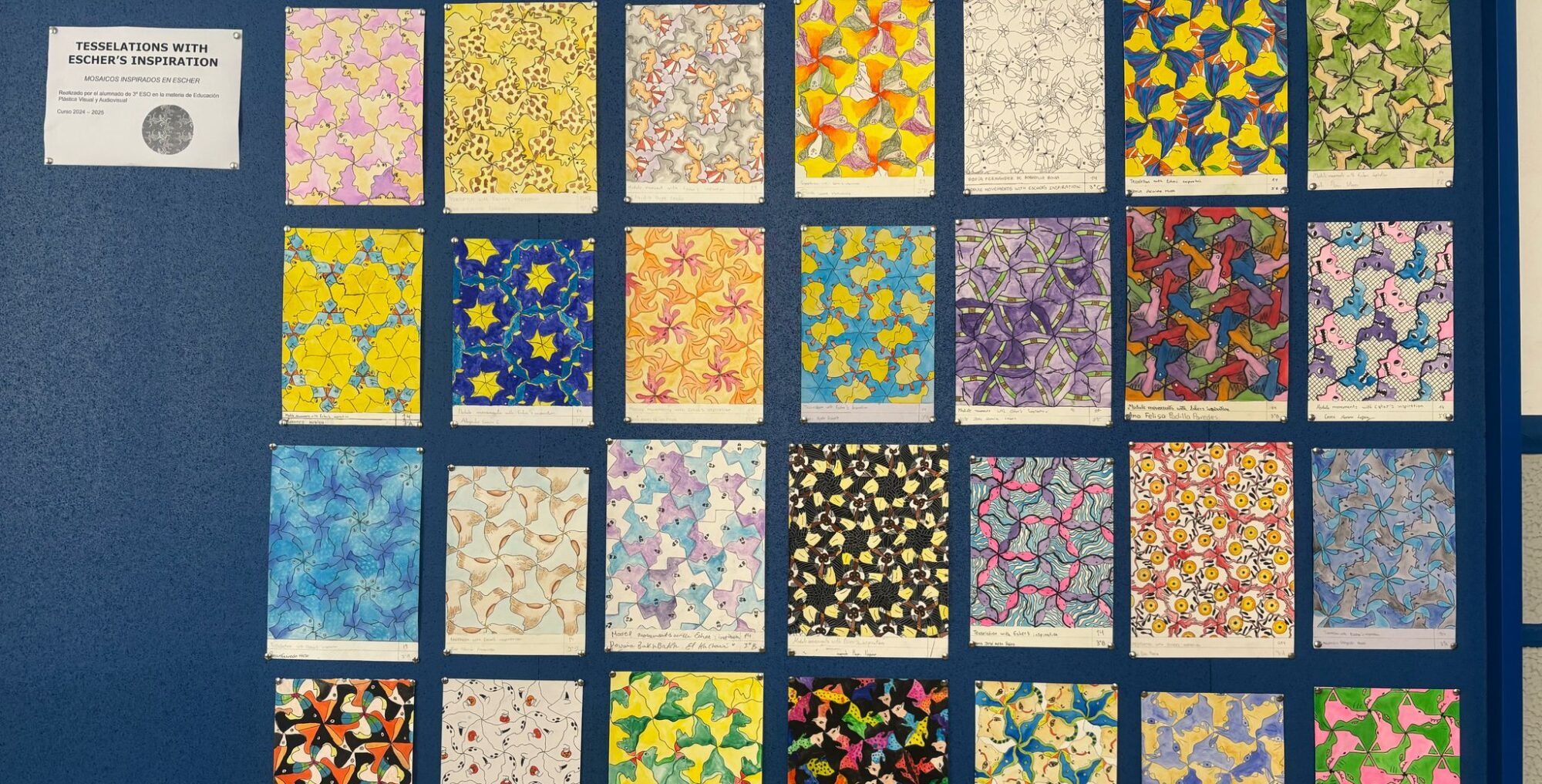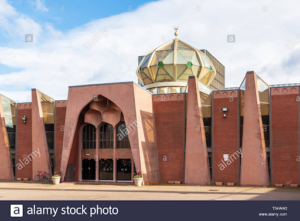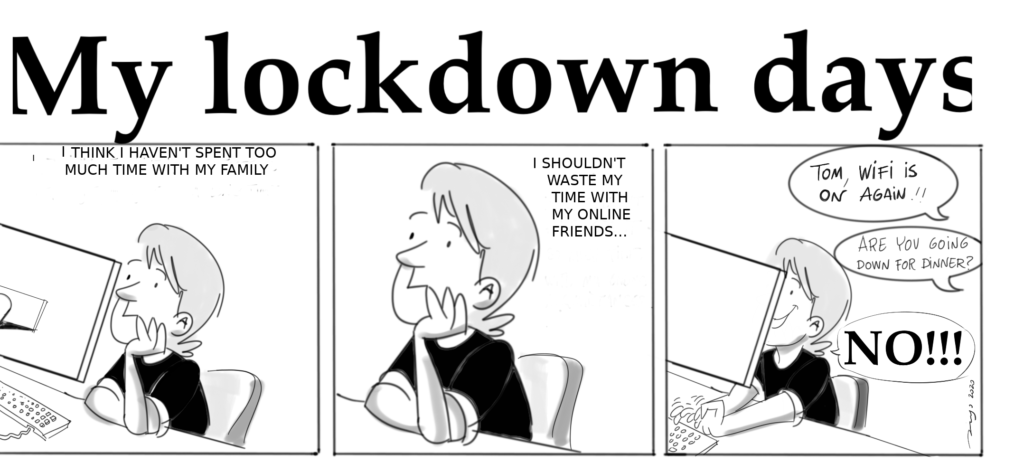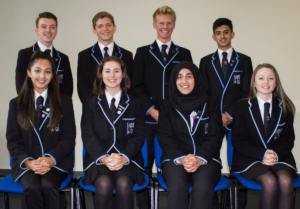VIDEO Nº 2 DEMOGRAPHIC INDICATORS . INDICADORES DEMOGRÁFICOS

Celia Viñas Bilingual Learning Site
VIDEO Nº 2 DEMOGRAPHIC INDICATORS . INDICADORES DEMOGRÁFICOS
Hi guys
This is the new unit: World population
Este es el tema nuevo: La población mundial. Os voy a enviar varios vídeos para que comprendáis el tema y la semana que viene os diré la actividad a realizar.
VIDEO Nº 1
3º ESO B
Tareas de la 28 a la 32 en el Aula Virtual
Preguntas de comprensión del texto “Schools in Scotland and Spain” en el blog del programa bilingüe (BREAK)
Actividades de repaso de “Past Simple and Continuous”
Construir una historia a través de un juego de la página web del British Council
Listening: “Because I don´t care”
Se recuerda que el alumnado que tenga la segunda evaluación suspensa deberá hacer el cuadernillo de actividades con explicaciones en castellano que aparece en el archivo adjunto. Cualquier duda, consultar al profesor. Debe entregarse antes del 29 de Mayo mandándolo a través de este aula virtual o por correo electrónico.
1º Bach
Tareas de la 30 a la 35 del Aula Virtual
Comprensión del video “Is your digital footprint dangerous?”
Actividades gramáticales de “Modal Verbs” y “Relative Clauses”
Dos pruebas de PEvAU (a realizar una esta semana y otra la próxima)
Listening: Waiting for a sunny place
Se recuerda al alumnado con dos evaluaciones suspensas: deberán realizar un trabajo (Project), propuesto por el profesorado, donde se deberá incluir la utilización de variedad de tiempos verbales, vocabulario ajustado al tema y un número de palabras indicadas(detalles en el Aula Virtual) .Después de la entrega de dicho trabajo, el profesor tendrá una entrevista por videoconferencia con el alumnado específico para hacerle preguntas sobre el trabajo presentado.
El alumnado con solo una evaluación entregará las fichas de actividades subidas en el aula virtual.
Todays topic is the special holy month for Muslims called Ramadan. Muslims all over the world fast for 30 days.
So what is fasting?
When a person fasts in Ramadan they don’t eat any food or drink (including water) from sunrise to sunset. Muslims fast for a number of reasons and some of these include: to become closer to God, reflect on their actions and to remember less fortunate people who don’t have food/water. Ramadan is a month of self improvement and discipline. Fasting also has a number of health benefits as it detoxes the body from harmful toxins. It gives your digestive system a break from eating too much food. Only people who are physically fit and capable are allowed to fast. For example children, people that need medicine daily and pregnant women do not have to fast. If a person is sick they do not have to fast.

A picture of Central Mosque in Glasgow. The biggest mosque.
Charity and helping others is a big part of Ramadan. Muslims are encouraged to donate money to people who are less fortunate and do not have enough food and water. Muslims are also encouraged to help people around them such as their family, friends, neighbours and people in the community.
What is Eid?
Eid is the celebration after the 30 days of fasting. There is an Eid prayer in the morning at the mosque and a special breakfast is eaten. On Eid people dress up in new clothes and we also celebrate by eating good food and enjoying food after fasting for 30 days. Presents and money are given to children and adults. It is a fun and exciting day spent with family and friends. In Glasgow we usually have some Eid events during the week such as markets, games and outdoor activities for families.
A different Ramadan
This year Ramadan has been very different for me and many people worldwide because of the Coronavirus. There are many things Muslims have not been able to do such as going to the mosque for Taraweeh (night prayers), having Iftar parties (Iftar is when we open the fast to eat!) and spending Ramadan with family and friends. As a result we will not be able to spend Eid together which is sad but for the best as staying home and being safe is very important during this time. I think I will be having a virtual Eid party with all of my family on Zoom! Eid 2020 will be on Saturday 23rd or Sunday 24th May this year.
Eid Mubarak/Happy Eid to you all when it comes!
Questions
Dear students,
Here you have a video with some of the drawings and references you sent me during April while we were working on the activity “Draw what you see through your window”.
Hope you like it!
Umber has cooked delicious tasty cookies and she is going to show us how to make them. If you have problems understanding the video, click on the file below to read the transcript. Bon profit!
Morning!
This is the last point of this unit. If you want to write a work about Tourism in Spain you will get a good mark in addition. So I´d like you think how the coronavirus is affecting to the tourism in Spain. I want you to know Tourism is Spain´s main economic activity. Yo can write in Spanish if you prefer.
Este es el último punto de este tema. si queréis escribir un trabajo sobre el Turismo en España, obetendréis una buena nota además de la de la traducción. Quiero que penséis cómo el coronavirus está afectando y afectará al turismo en España, teniendo en cuenta que el Turismo es la principal actividad económica.
You have to translate the tablets of Business services and personal services.
Tenéis que traducir las tablas de servicios empresariales o de negocios y servicios personales.
Here you are the glossary:
Design(designed): diseñar (diseñado)
To meet the needs of business: Cubrir las necesidades de las empresas
Replace: sustituir, reemplazar
complement: complementar
within: dentro de
Knowledge intensive services: Servicios intensivos de conocimiento
Fiscal and legal advice: asesoramiento fiscal y legal (esto se refiere a cuando las empresas necesitan de gente muy cualificada con conocimientos en impuestos, fiscal, y a nivel legal para que sean asesoradas, ayudadas a tomar buenas decisiones en estas áreas , la fiscal y la legal.)
marketing: técnicas de venta
design: diseño
management: gestión
IT (Information technology): tecnología de la información (es todo lo relacionado con los ordenadores y su funcionamiento)
operating (or traditional) services: servicios operativos o tradicionales
Cleaning: limpieza
security: seguridad
accounting: contabilidad
entertainment: entretenimiento
domestic services: servicio domestico
staff: personal
Assistance for the elderly: asistencia a ancianos
childcare: cuidado de niños
nursery schools: guarderías
Maintenance and repair: mantenimiento y reparaciones
painters: pintores
plumbers: fontaneros
electricians: electricistas
Independent professional services: servicios de profesionales liberales
lawyers: abogados
journalists: periodistas
hairdressers: peluquerías
bakeries: pastelerías
florists: floristerías
dry cleanesrs: tintorerías.

3 ESO B (Aula Virtual)
1. Make a comic strip about your experiences during the quarantine ( like the example) with expressions learnt during this course.
2. Listening: A child describing pictures to experts
3. Video about difference between Britain and UK
4. Make up your own story tale (Once upon a time …)
5. Umber’s Quiz.
1 Bach B, C (Aula Virtual)
1 Make a comic strip about your experiences during the quarantine ( like the example) with expressions learnt in units 1 and 2
2. Description of a friend or an acquaintance
3. Difference between USED TO and GET USED TO
4. Past Tense Contrast
5. Video about difference between Britain and UK
6. Writing :Make up your own story
7.Listening: USED TO Songs

I worked in two schools in Almería for five months and I noticed some differences between the school systems in Spain and Scotland.
The first very noticeable difference is that pupils in Scotland are obliged to wear school uniform every day whereas Spanish students are allowed to wear whatever they want. High school children/teenagers will typically wear a white shirt, a tie, trousers or a skirt, a blazer and black shoes. We even had a uniform for PE (Physical Education). I liked wearing a uniform in school because it meant I didn’t have to decide what to wear to school everyday. However some students would prefer to wear whatever they wanted and we would sometimes have debates about this in English class.
Another difference I have noticed is the timetable. In Almería classes would begin at 8:15am and finish at 2:45pm but in Scotland high school begins at 8:45am and finishes at 3:35pm. I found it strange that there was no lunch break in between classes in Almería. In Scotland we have 2 classes then a break for 15 minutes. Then another 2 classes followed by the lunch break which lasted 45 minutes and then another 3 classes. However in my old high school we would finish at 2:45pm on Wednesday and Friday. On Monday,Tuesday and Thursday we would finish at 3:35pm.
In Almería students would stay in the same class for a lot of their classes. Teachers would go to their next class depending on what lesson they were teaching next. However in Scotland it is the students that have to walk to their different classes and the teacher stays in the same classroom.
Questions